CUEB Convenes High-Level Forum on Data Elements and Digital Economy
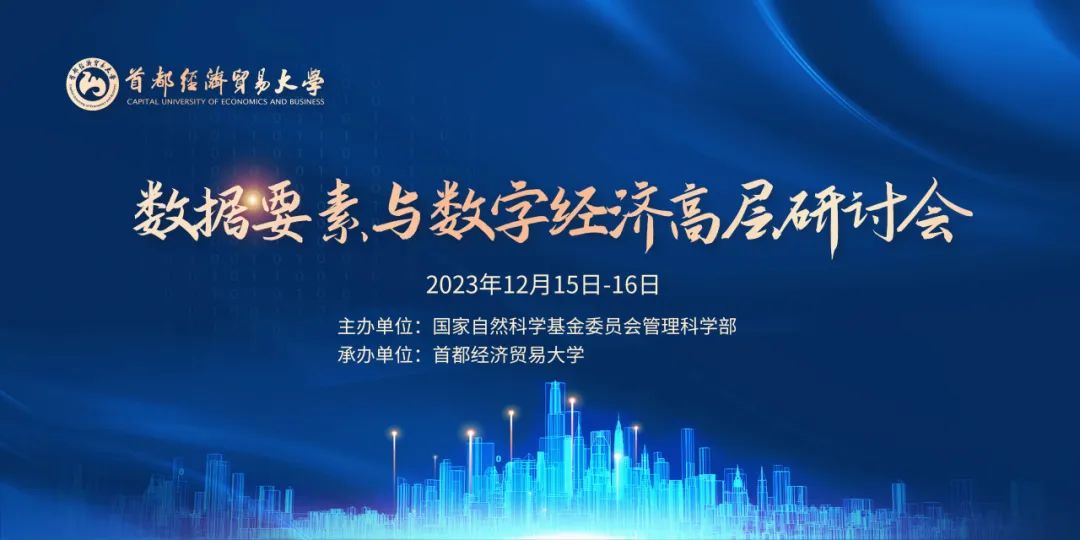

On December 15 and 16, CUEB convened the “High-Level Forum on Data Elements and Digital Economy”, which was organized by the Department of Management Sciences of National Nature Science Foundation of China(NSFC) and hosted by CUEB. The forum focused on the key aspects and practical challenges of digital elements and digital economic development, providing theoretical support for top-level design and institutional construction. Chen Bei, Deputy Secretary-General of the People’s Government of Beijing Municipality, academician Jiang Song, Member of NSFC Party Committee and Vice President, Wang Wenju, CUEB Party Secretary, alongside with comrades from the Second Preparatory Committeeof the National Data Administration attended the opening ceremony and delivered speeches. Attendees included President Wu Weixing, Deputy Party Secretary of CUEB, Xu Fang, Deputy Party Secretary of CUEB, Chen Yanbin, Member of the Standing Committee of CUEB Party Committee and Vice President, Wu Gang, Director of DivisionIIIofManagementSciences of the NFSC, Chen Zhongfei and Bai Yang, Project Director of DivisionIIIofManagementSciences of the NFSC. Altogether, experts and scholars from more than 20 universities, government departments, and research institutions attended this forum.

The forum officially opened on December 15th. Liu Zuoyi, Deputy Director of the Department of Management Sciences of the NSFC, presided over the opening ceremony.

Chen Bei delivered a speech and emphasized that this forum was of great significance for promoting the healthy and sustainable development of the digital economy. Since the 18th CPC National Congress, the Party Central Committee has attached great importance to the development of the digital economy, which has brought opportunities to the global economy, promoted efficient allocation of resources, enhanced productivity, and given rise to new industries, forms, and models. The digital economy has become a key driving force in supporting economic growth in Beijing, making Beijing a model city. In the future, Beijing will continue to innovate in the digital economy, support the digitization and intelligent transformation of traditional industries, enhance international cooperation, and foster global development. The People’s Government of Beijing Municipality will work together with all parties to create a bright future for the digital economy.
Experts from the Second Preparatory Committee of the National Data Administration stated in their speech that basicinstitutional construction of data was a new field for institutional innovation, requiring participation and in-depth research from all stakeholders. They expected experts from all walks of life to focus on four aspects listed below:
• First, allocate data property rights more properly and theoretically clarify the functioning mechanism of data ownership, processing, usage, and management rights.
• Second, develop a compliant and efficient data circulation and transaction system that adapts to data element properties.
• Third, encourage the construction of a fair and efficient data income distribution mechanism to motivate enterprises to engage in the development of the data elements market.
• Fourth, adapt the governing system to digital technology development, thus balancing development and security.
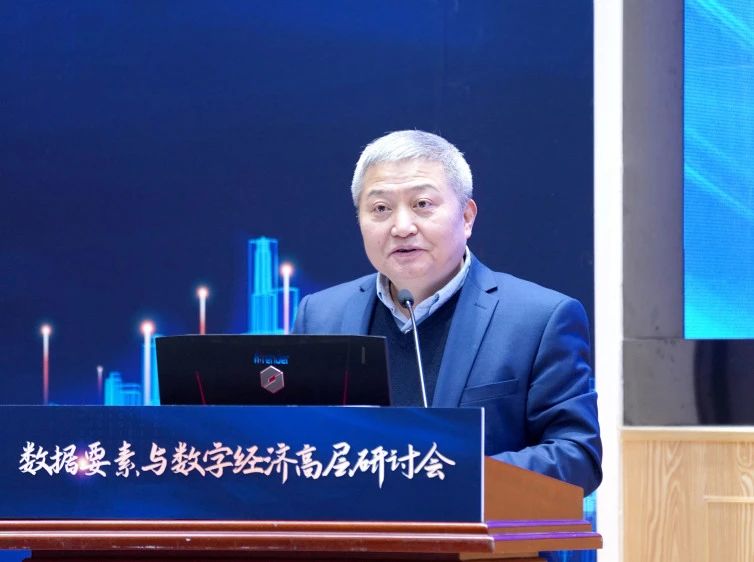
Jiang Song stated in his address that digital technology is profoundly changing the ways of work, life, and social governance. It has emerged as a driving force in the global technological revolution and industrial transformation. Since the 18th CPC National Congress, the Party Central Committee has placed a high priority on the development of the digital economy, elevating it to the status of national strategy. The Management Sciences Department has established several major programsand special projects to advance the high-quality development of China’s data elements and digital economy. He introduced the issues of the data elements market and circulation in theory and practice. He expected that experts and scholars would exchange ideas and further refine key scientific issues to help China’s digital economy progress.
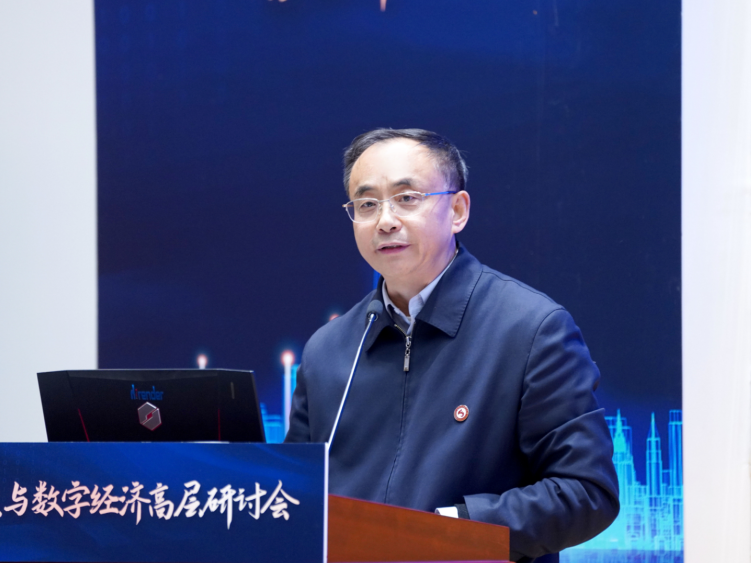
Wang Wenju said that the digital economy influences the global economy and competition, and CUEB has conducted research on digital economy in recent years. CUEB has set up the Beijing Institute of Digital Economy Development, which will promote cross-disciplinary digital economy growth, and train high-level personnel in the field, thereby contributing to capital construction. In the future, CUEB will continue to coordinate advantageous resources, cultivate personnel in this field, conduct systematic research, and serve as a high-end think tank. Wang expected that all parties would continue to support CUEB’s development, and looked forward to deeper exchanges and corporation, contributing more to the development of Digital China and the establishment of Beijing as a global digital economy benchmark city.
Experts presented reports on data element circulation, anti-monopoly regulation, mechanism design, obstacles hindering the integration of digital technology and the real economy, and other issues in the digital economy, as well as the latest research achievements. Wu Weixing presided over this section.
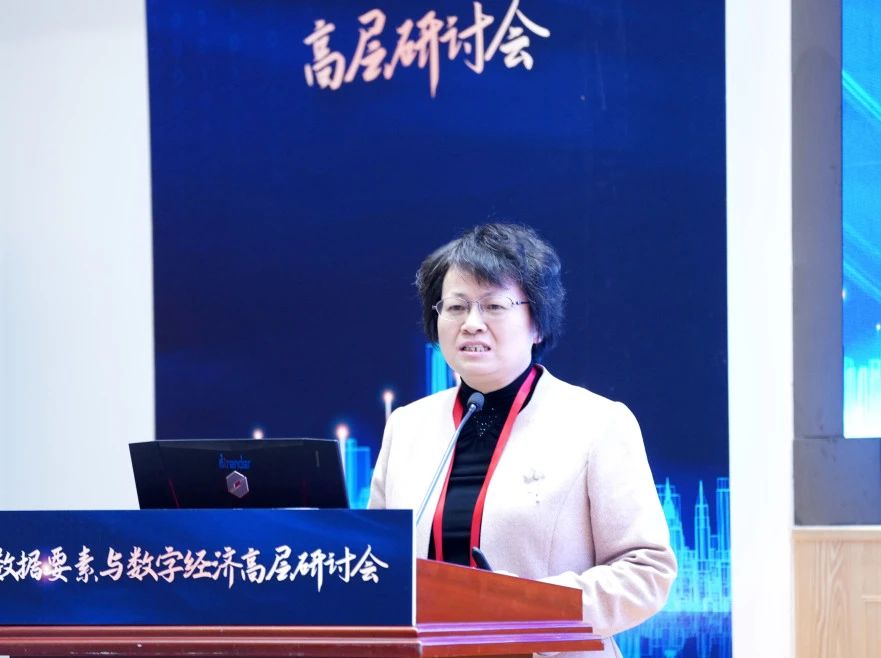
Huang Lihua, Professor of Fudan University (FDU), delivered a speech titled “Management Science Issues in Data Elements Flow”. Huang elaborated on the logical relationship between data elements and digital economy development, as well as concerns about the circulation and exchange of these elements. She emphasized the importance of management science issues in terms of basic research and market construction in data elements flow. She also emphasized the importance of researching data elements circulation model, motivation and decision-making behavior of participants, coordination and trust mechanism of both supply and demand sides, safe and trusted trading rules design, and other issues. Finally, she said that data elements circulation is a new field that requires multidisciplinary integration and the exploration of the whole society.
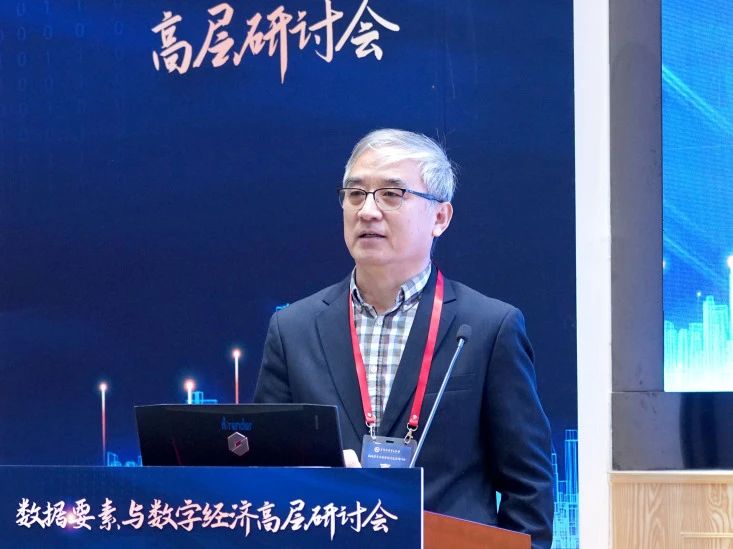
Lin Ping, Professor of Shandong University (SDU) delivered a speech titled “Digital Economy Development and Anti-monopoly Regulation: Logic and Challenges”. Lin elaborated on new forms in digital economy development and their impact. He emphasized the importance of utilizing competition policy and establishing its foundational position, as well as removing market barriers to promote the high-quality development of the digital economy. He also said that the growth of data elements trade depends on the market, thus there is a need to integrate local development and the national unified market and set a “regulatory sandbox” for the data element market. Finally, he said that anti-monopoly in the digital economy is a global issue that must be addressed in both theory and practice.
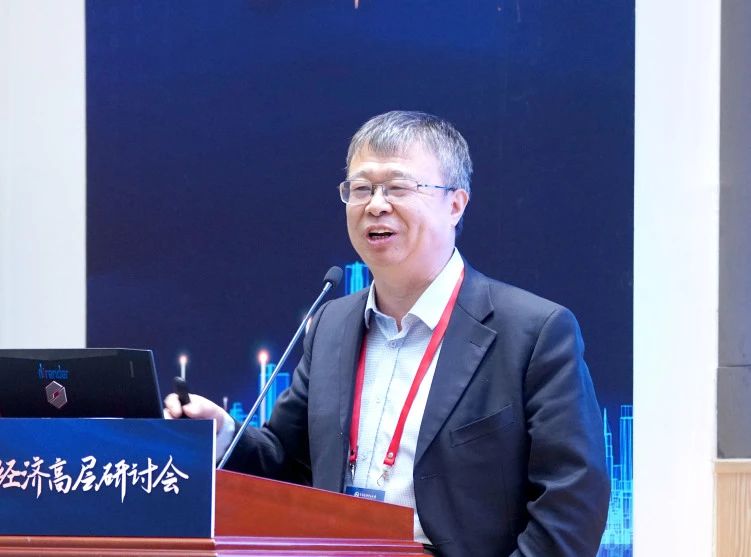
Yang Xiaoguang, researcher at the Academy of Mathematics and Systems Science, CAS, delivered a speech titled “Digital Economy and Game Design”. Yang examined the distinctions between digital and traditional economies and elaborated on new game relationships in the digital economy. He stated that the fundamental difference between traditional and digital economies is that the study of economics has shifted from “natural evolution” to “designed evolution”, with data elements and digital technology as economic empowerment tools. The digital economy requires a convenient purchase and marketing mechanism, a trading realization mechanism, and a market regulation mechanism. Finally, he said that game design is part of the superstructure of the digital economy and plays an important role in its development.
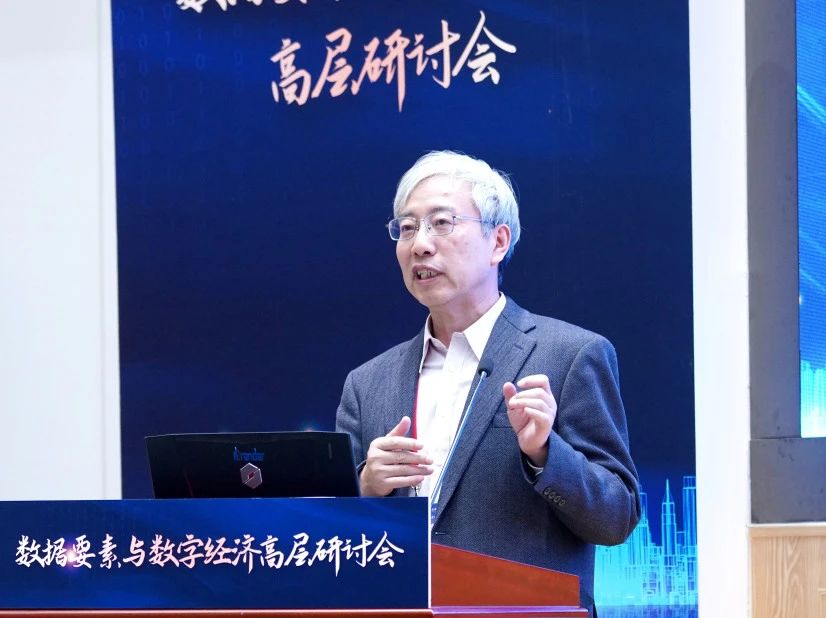
Sun Ning, Professor of Southern University of Science and Technology delivered a speech titled “Market Design and Data Elements”. He compared data elements with regular products based on market design philosophy and methodology, revealing issues in its trading. He put forward market structure design plans and pricing mechanisms on standardization, commercialization, and assessment, as well as suggestions for privacy protection and data usage efficiency, data security, and risk management.
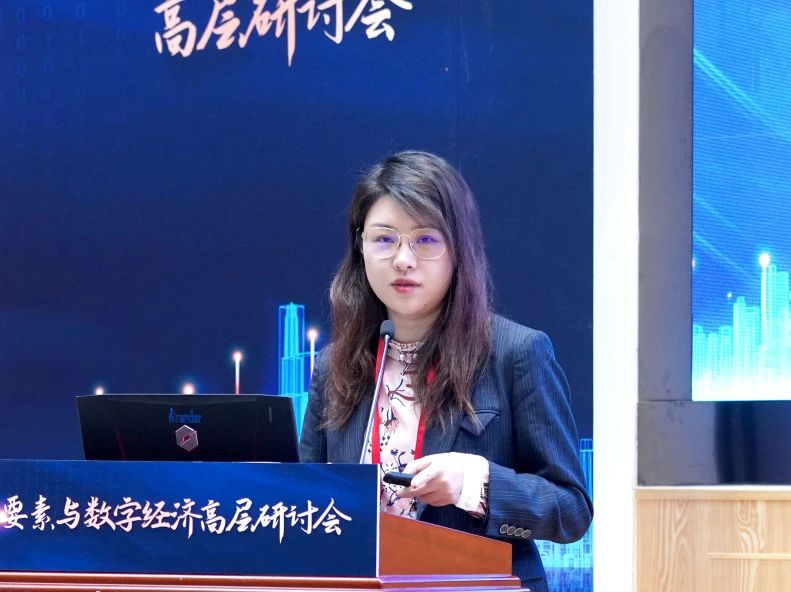
Wang Guan, Deputy Director of Shenzhen Data Exchange (SZDEX) delivered a speech titled “Scenario-driven Digital Technology and Real Economy Integration: Exploration and Practice”. Wang introduced the innovation of SZDEX. She emphasized that big data industry has become an important force in advancing digital economy development. She also remarked that the major tasks in the development of the digital economy are fostering a data element market, empowering data elements in various fields, and unleashing the potential of data productivity. She stated that SZDEX improved data industry by forming a community, establishing workstations, building an industry park and cultivating personnel.
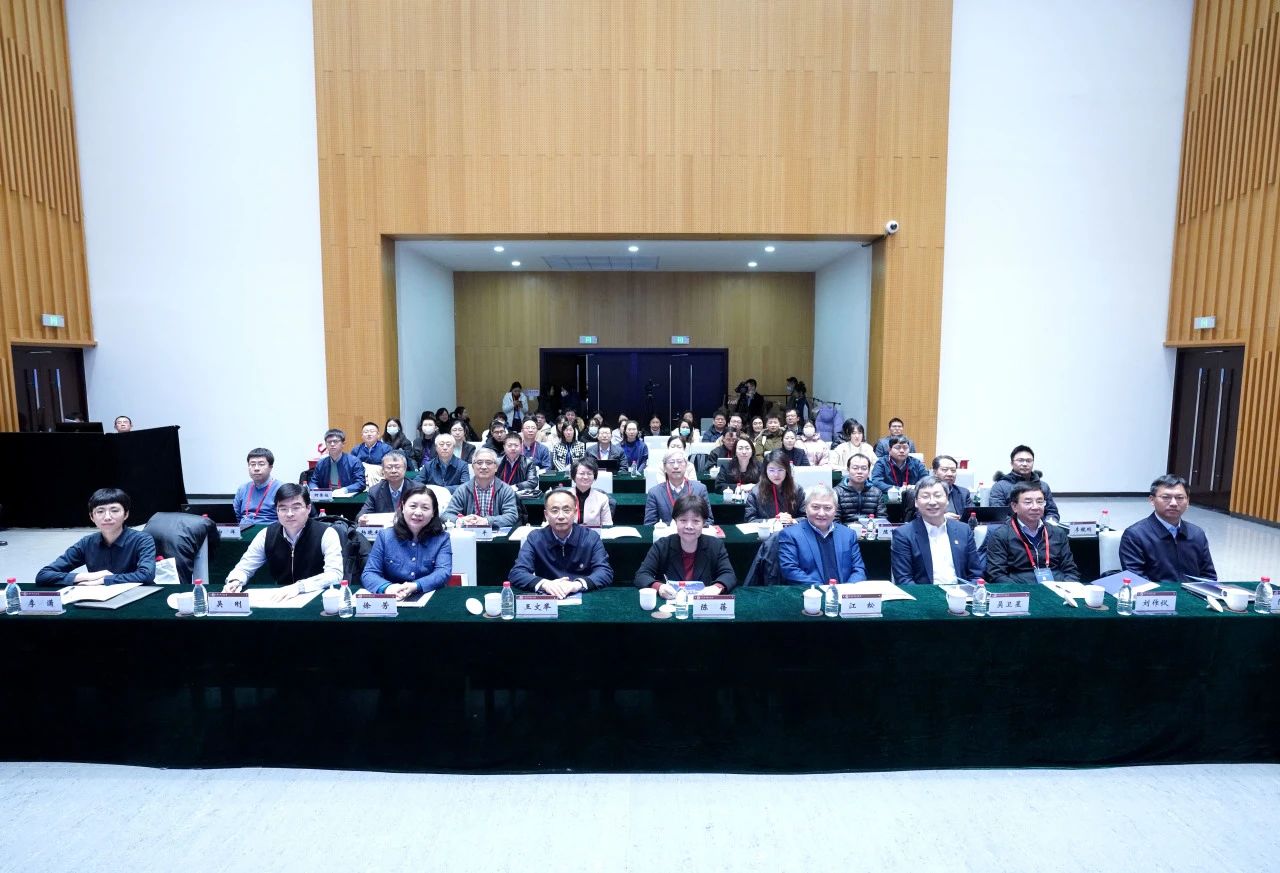
On the afternoon of December 15, a sub-forum was organized. The forum was presided over by Huang Lihua, Qiu Zeqi, Li Kunpeng, and Chen Yanbin.
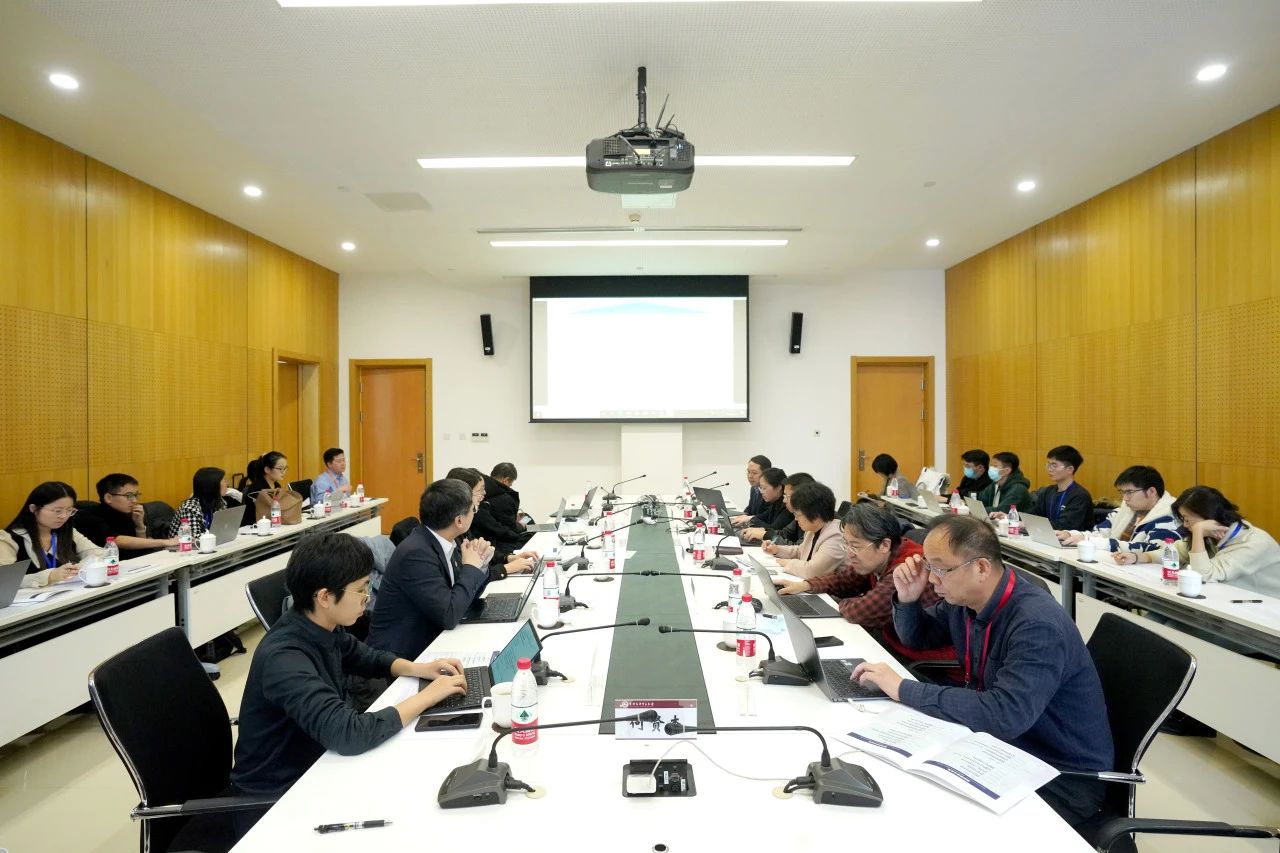
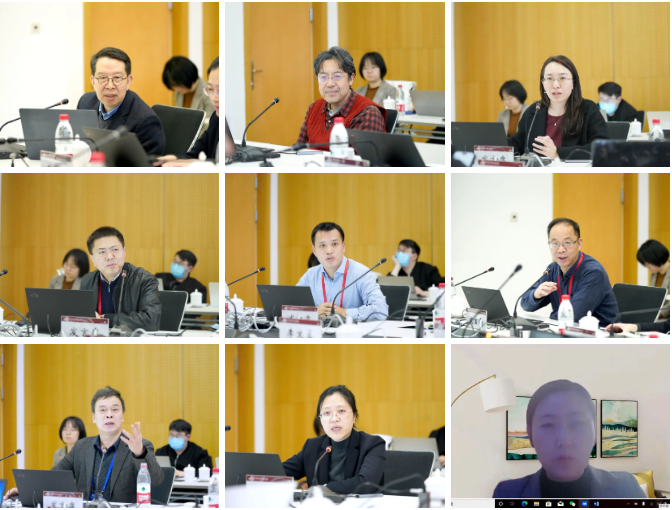
Qiu Zeqi, Professor of Peking University (PKU) delivered a speech titled “System, Mechanism and Data Elements Circulation”. Qiu introduced circulation difficulties and examined causes in terms of socioeconomic costs and uncertainty and gave suggestions, such as institutionalizing ownership, distributing data trading income in a staged manner, and establishing a security base for data circulation regulation.
Tang Ke, Professor of Tsinghua University, delivered a speech titled “Regulatory Problem of Data Asset”. Tang elaborated on the data capitalization process and existing regulations, emphasizing the importance of regulating the transaction to avoid concerns such as click farming and valuation bubbles. Finally, he gave suggestions for data asset evaluation and auditing in the private and public sectors.
Song Jie, Professor of PKU, delivered a speech titled “Value and Privacy: Controversy over Data Elements”. Song analyzed pricing mechanisms based on data attribute evaluation and market equilibrium, designed a plan for distributing the contribution of data in value creation, and emphasized that federated learning from the perspective of privacy is the future development trend in the field of big data and AI and highlighted the practical way of the incentive mechanism based on the contribution to promote the federated learning.
Yang Kaifeng, Professor of Renmin University of China (RUC), spoke on “Utilization and Authorization of Public Data: Current Situation, Model and Challenge”. He discussed the current state of public data and put forward four authorized models from three aspects including “the authorization model”, “the aggregation model” and “the operation model”, and analyzed typical cases. Finally, he summarized current challenges regarding the authorization and value of public data and pointed out the future direction.
Associate Professor Cao Sheng, on behalf of Prof He Xianjie from Shang University of Finance and Economics, delivered a speech titled “Issues Related to Accounting Treatment of Data Resources”. He interpreted the latest guidelines governing the inclusion of corporate data assets into the balance sheet. He talked about the difficulties of confirmation, measurement and valuation, information use, and economic outcomes of data assets. Finally, he introduced the related theories of data assets.
Liu Yezheng, Professor of Hefei University of Technology, delivered a speech titled “Trusted Mechanism of Data Elements Circulation and Utilization”. Starting with the importance of credit in data elements circulation, he elaborated on issues caused by the unique characteristics of the elements and proposed a PDCA-trusted system of entity, data, contract, and algorithm and safeguard data element circulation through management and technology collaboration.
Li Wenli, Professor of Dalian University of Technology, presented research titled “Design of Regulatory Framework for Open Medical Data: Based on OpenNeuro”. He analyzed the regulatory requirements for sharing health and medical data. He investigated concerns encountered by China’s supervision and introduced OpenNeuro supervision mechanism framework in detail. Finally, he proposed that we should consider the whole country, learn from advanced platform design, and improve the legal system to build a regulatory framework for health and medical data sharing.
Zeng Xueyun, Professor of Beijing University of Posts and Telecommunications, gave a report titled “Cognitive Differences in the Inclusion of Data Assets in the Balance Sheet and Cutting-edge Research on Basic Accounting Theory”. She went into great detail about people’s cognitive differences regarding the inclusion of data assets in the balance sheet. She believed that a statement of changes in data assets should be formed and implemented. She systematically refined forward-looking issues in the basic theory of data asset accounting based on typical scenarios, such as China Everbright Bank, China Mobile, and China Unicom.
Huang Rong, Professor of FDU, gave a report titled “Research on the Valuation and Inclusion of Enterprise Data Resources”. She advanced the theory and method of data resource value assessment by in-depth analysis of typical cases of the value assessment and allocation of data resources. Finally, she raised concerns about data rights confirmation, cost measurement, accounting processing, and data resource disclosure.
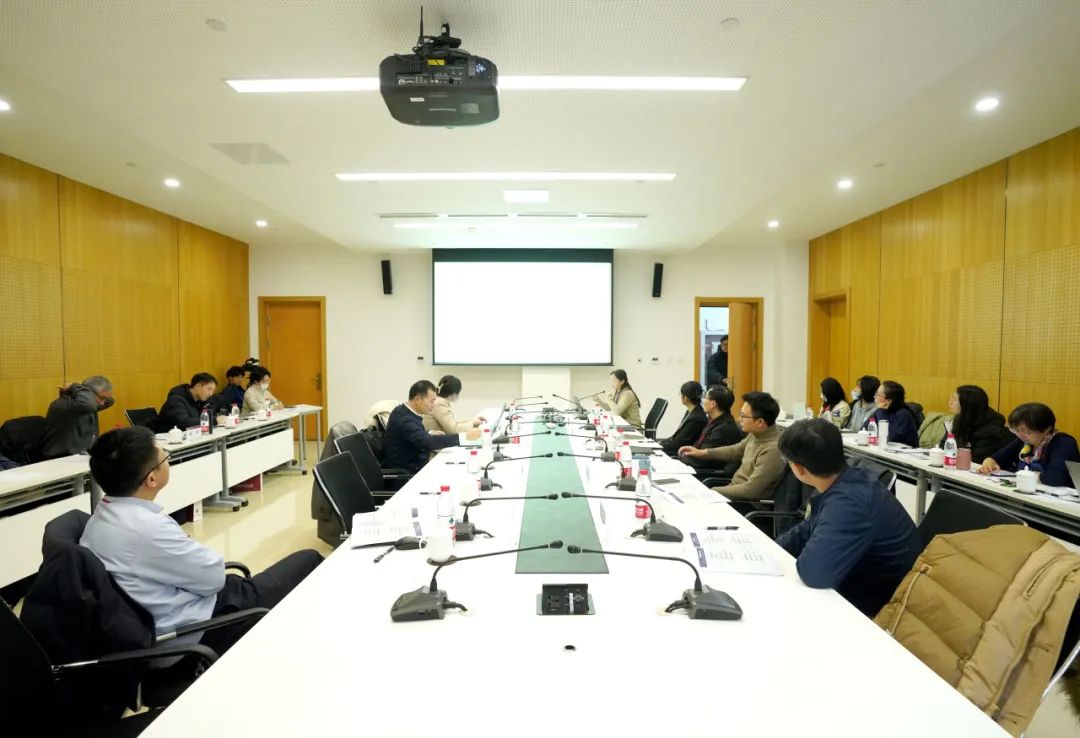
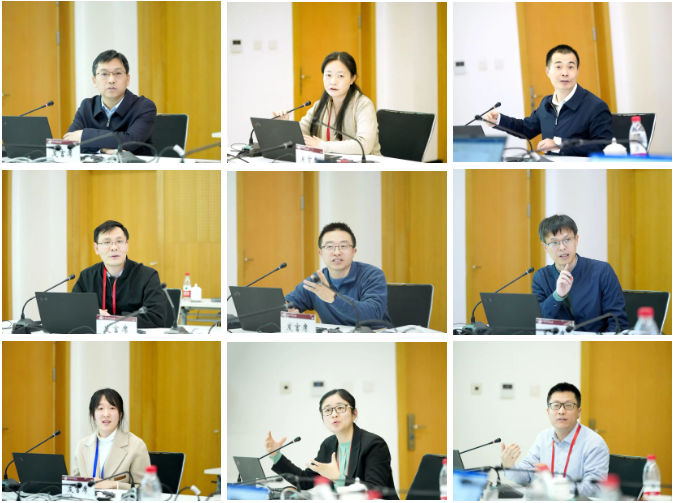
At the digital economy sub-forum, Chen Yanbin from CUEB gave a report titled “Digital Economy and Macroeconomic Control”. He thoroughly analyzed the issues, such as how the digital economy may aggravate economic inequality and decrease the efficiency of macro-control. In the era of the digital economy, he emphasized the importance of implementing the macro policy of “Three Policies in One”, namely adjusting and reforming the economic structure and institutional mechanisms that constraint long-term growth , innovating themacro-control model to adapt to changes in economy, and focusing on constructing the theoretical framework and policy system of macro-control.
Meng Juanjuan, Professor of PKU, gave a report titled “Behavior Research and Boosting Policies under the Digital Economy”. She profoundly analyzed typical digital economy behavioral difficulties, such as digital addiction, information cocoons, data breaches, and algorithmic attitudes. She explained how the current degree ofdigitalization provides the foundation and easy access to behavioral intervention policies. Then she stated that behavioral intervention measures combined with artificial intelligence technologies can readily yield breakthroughs in innovations and large-scale applications.
Cai Yuezhou, researcher of the Institute of Quantitative and Technological Economics of the Chinese Academy of Social Sciences, gave a report titled “The Position, Trends and Challenges of China's Digital Economic Development at the New Development Stage”. He deeply examined the characteristics and boundaries of the digital economy, as well as the scale and structure of the added value of China’s digital economy. By comparing the development of the digital economy at home and abroad, he systematically summarized the challenges and provided suggestions, such as optimizing supervision to promote the healthy development of the platform economy, steadily advancing digital transformation, and laying a solid foundation for technology and real economy integration.
Li Sanxi, Professor of RUC, gave a report entitled “Thoughts on the Construction of Data Elements Market”. He summarized the problems confronting the current data elements market construction, such as inadequate basic theory, unreasonable income distribution mechanism, excessive transaction costs, and insufficient pricing system. Heprovided solutions in the fields of data property rights allocation, consumer privacy protection, data monopoly, and transactions, and big data price discrimination.
Yang Xuewei, Professor of Nanjing University(NJU), gave a report titled “Investor Behavior and Market Supervision in the Digital Era”. He illustrated how information dissemination in the digital age is undergoing profound changes with typical cases, such as GameStop's stock price fluctuation, social network information dissemination and bank run, the failure of stamp duty, and the crash of “Financial Tea” (futures on tea). He emphasized that financial supervision and behavioral correction in the digital era should focus on financial institutions and new forms of Internet entities, as well as new media users.
Ke Rongzhu, Professor of Zhejiang University gave a report titled “Understanding the Value of Consumer Data from the Perspective of Bilateral Externality”. He constructed a sequential search model of standard consumers. The model employed the differences between product utility and search costs as the optimization objective function and also incorporated a competition mechanism between platforms. The goal of the model is to examine the impact of platform algorithm games on the interplay between intelligent algorithms and network externalities, as well as to analyze the role of information in specific decision-making processes. Its findings revealed that digital platforms benefited from scalability in data collection and processing.
Dr. Duan Keran, on behalf of Prof Zhang Xi of Tianjin University, delivered a speech titled “Difficulties and Practices in Risk Management and Control of Data Elements Circulation”, pointing out that while data have become a new factor of production, security risk issues are also constantly emerging. In the field of micro-management and macro-governance, research was undertaken on risk perception, identification, assessment, classification, and early warning system development throughout the data element circulation process. His research seeks to improve risk management capabilities and governance efficiency.
Zhang Qunzi, Professor of SDU, gave a report titled “Investor Behavior and Market Supervision in the Digital Era”. She thoroughly examined heterogeneity and information asymmetry in the digital economic transformation, the asymmetry between technology spillovers and technology shock, as well as asymmetric competition in digital transformation. She also advocated for a stronger balance between the rights and interests of data elements and technology elements, as well as systematic regulatory planning for digital economy transformation risks.
Cao Zhigang, Professor of Beijing Jiaotong University, gave a report titled “Information, Knowledge and Data from the Perspective of Game Theory”. He explained that digital elements have the potential to influence decision-making on the supply side and improve the matching efficiency of other resources. This potential gives data elements transaction value. However, since the generation of data elements is a game process, attention should be paid to the data rights confirmation.

On the morning of the 16th, CUEB held a forum on Beijing’s data elements and high-quality development of the digital economy. Focusing on the digital economy, teachers from CUEB reported on specific topics, including personnel cultivation, social services, and scientific research, making exchanges and discussions with experts. This section was presided over by Chen Yanbin, Member of the Standing Committee of CUEB Party Committee and Vice President, andZhao Jiazhang, Deputy Dean of the School of Economics (in charge of work).
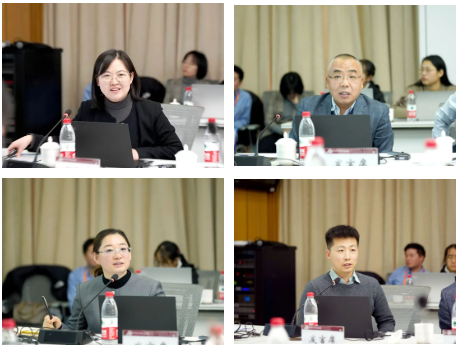
During the report session, Du Wencui, Deputy Dean of the School of Economics, Fan Hejun, Deputy Director of the Office of Research, Sun Zhongjuan, Deputy Dean of the College of Business Administration, and Wang Tao, associate professor of the International School of Economics and Management, all presented their research findings.
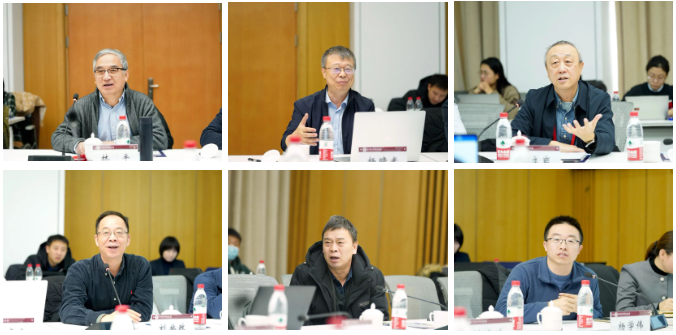
During the exchange session, Lin Ping, Yang Xiaoguang, Han Liyan, Professor of Beihang University, Liu Yezheng, Li Wenli and Yang Xuewei engaged in exchanges and discussions about the topic.
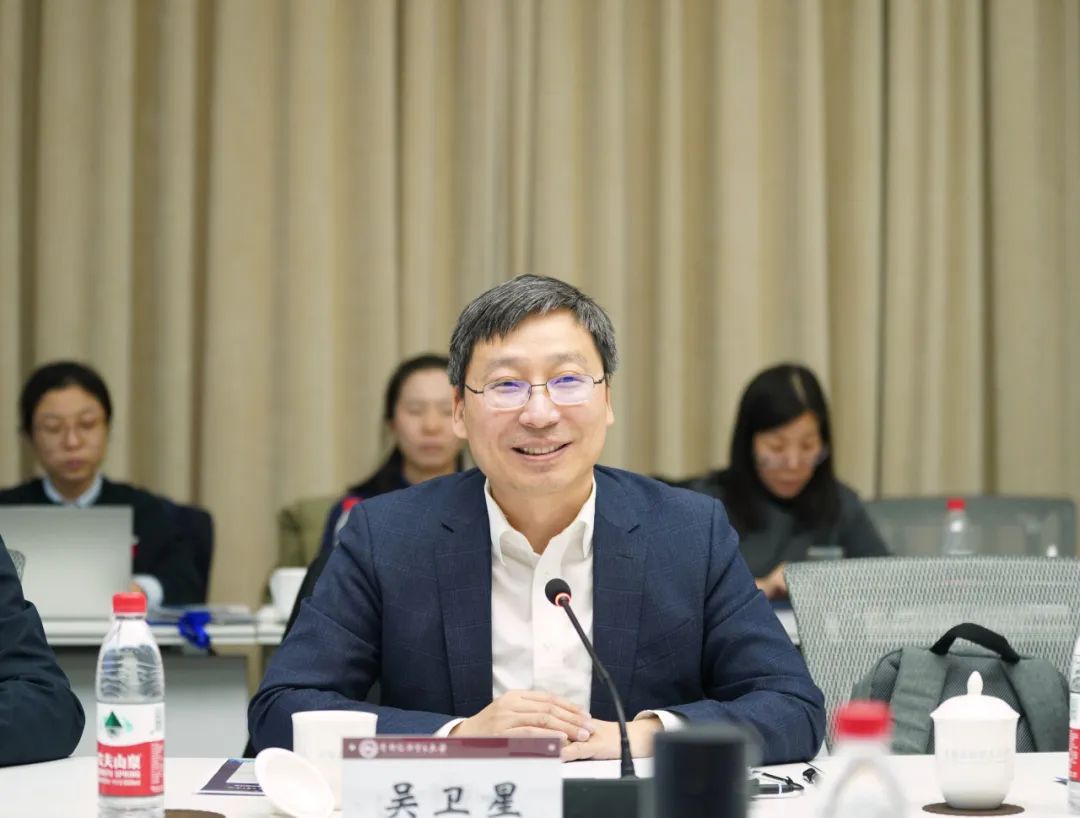
On behalf of CUEB, Wu Weixing expressed his heartfelt thanks to all the experts and scholars for their attendance. He stated that the forum was a success and that the insights from these professional experts would influence both the scientific research of young faculty members and the discipline construction in the digital economy. Wu hoped that the experts would continue to support the development of CUEB, deepen collaboration, and conduct research in the field of digital economy.
